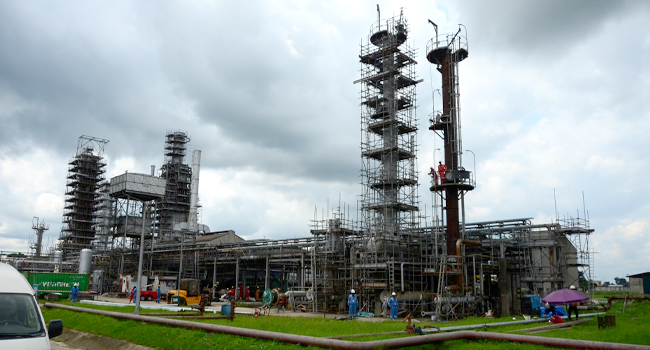
Long Wait For PH Refinery …C0NTINUE READING HERE >>>
The Nigerian National Petroleum Company (NNPC) Limited’s continued failure to meet the deadlines it set to deliver on one of the nation’s moribund refineries, the Port Harcourt Refinery, is, to say the least, discomforting.
We recall that the national oil company repeatedly set delivery timelines for the refinery, and all were missed without concrete reasons. From December 2023 to date, the NNPC has given different dates for the 210,000-barrel-per-day Port Harcourt Refinery to begin selling refined products.
Last month, NNPCL chief executive Mele Kyari said the refinery would begin operation in early August. Midway into August, Kyari’s “early August” has yet to come as the refinery is still not operational.
In March 2021, the Muhammadu Buhari government awarded a $1.5 billion contract for the refinery’s repair to Tecnimont SPA, an Italian company, to be completed in three phases over 18, 24, and 44 months. The project involved Italy’s Maire Tecnimont as a technical adviser and oil major Eni for technical advisory services.
After repeated assurances that the refinery will come on stream, it appears Nigerians have a long wait to see this happen. But why has NNPC Limited yet to offer plausible explanations for this delay despite repeatedly failing to meet its deadline?
Indeed, the failure to meet deadlines for the Port Harcourt Refinery is emblematic of the Nigerian leadership situation, where public officials make promises and renege and are not held accountable. For us, accountability is a non-issue. Otherwise, there should have been either sanctions for failing to meet deadlines or concrete reasons for these repeated misses.
But why should the nation be concerned about having Port Harcourt and other refineries working? This should be a priority since vast sums of money are expended to import refined petroleum products. Not only is Nigeria spending its dwindling revenue on importation, but it is also straining the local currency through huge forex demand since most of these transactions are done with dollars.
Nigeria’s finance and coordinating minister of the economy, Wale Edun, recently disclosed that the country was spending a staggering $600 million on fuel importation monthly.
If the nation’s spending this much on fuel imports is not a strong reason for NNPC Limited to make haste in ensuring that the Port Harcourt Refinery and, indeed, more others come on stream, then nothing else will.
It is disturbing that despite the nation’s huge oil reserves and the opportunities provided by building modular refineries, Nigeria still relies heavily on imported petroleum products, importing over 80 percent of its domestic fuel needs.
The rehabilitation of the Port Harcourt Refinery provides yet another opportunity for the nation to reduce its fuel import expenses, and concerted efforts must be made to ensure this works without further delay.
Perhaps we need to learn from Africa’s second-biggest oil producer, Angola, which has gone far in its plans to build more refineries in addition to the existing 65,000 bpd plant in Luanda.
Already, Angola is developing three new refineries in Cabinda, Lobito, and Soyo. While the Cabinda refinery is scheduled for commissioning by the end of this year, the Lobito and Soyo refineries will follow from 2025 onwards. The plan is to increase local refining capacity to 400,000 bpd.
Although the nation’s enabling laws permit the establishment of private refineries, some of which, like the Dangote Refinery, are already up and working, the need to ensure public refineries work cannot be understated. Ensuring effective energy security demands that the government be actively involved in critical ventures like petroleum refining.
The NNPC Limited and, by extension, the oil and gas sector have recently come under heavy public scrutiny owing to the high cost of buying fuel in the country, as well as the issues surrounding the supply of crude to the Dangote Refinery.
Nigerians are justified in asking that the Port Harcourt Refinery, having gulped a whopping $1.5 billion, must work without further delay. The nation cannot spend huge sums on petrol importation while the citizens buy petrol at close to N1,000 per litre when local refining promises to offer a reprieve.
We ask that NNPC disclose the actual status of the Port Harcourt Refinery. There have been enough missed deadlines without plausible reasons.
>
Leave a Reply